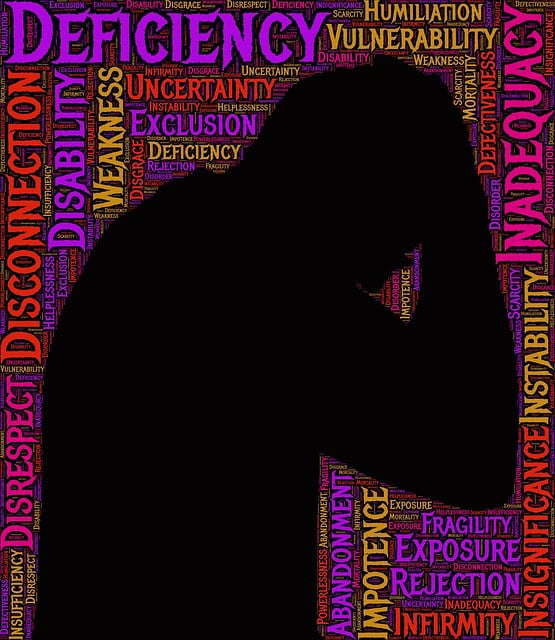Longmont Men's Issues Therapy faces unique challenges due to cultural barriers surrounding masculine identity, hindering open communication about emotions and vulnerabilities among male clients. Effective risk management strategies involve creating safe spaces encouraging self-awareness, healthy coping mechanisms, and inner strength development. Integrating depression prevention techniques can anticipate and mitigate risks, fostering a supportive environment for healing and personal growth. Robust risk management plans should include clear policies for crisis situations, confidentiality preservation, and ethical dilemma navigation, while promoting therapists' resilience through self-awareness exercises, mental wellness coaching, and coping skills development. Community outreach programs and prioritizing therapist self-care are also essential for effective risk mitigation and supporting clients' long-term mental health in Longmont Men's Issues Therapy.
In the demanding field of mental health, particularly within Longmont men’s issues therapy, professionals face unique risks. This article guides practitioners through essential risk management planning, catering specifically to the challenges encountered in Longmont’s therapeutic landscape. We explore understanding specific risks, crafting comprehensive plans, and implementing strategies to mitigate potential hazards effectively. By adhering to these practices, mental health professionals can enhance patient safety and foster a secure environment tailored to men’s therapy needs in Longmont.
- Understanding Risks Specific to Men's Issues Therapy in Longmont
- Essential Components of a Comprehensive Risk Management Plan
- Strategies for Mitigating and Responding to Potential Hazards
Understanding Risks Specific to Men's Issues Therapy in Longmont

In the context of mental health practice, Longmont Men’s Issues Therapy faces unique challenges stemming from the specific nature of male clients’ experiences and struggles. The therapeutic landscape in Longmont, tailored to men’s issues, reveals a set of risks that differ from other specialties. These include cultural barriers related to masculine identity norms, which can sometimes hinder open communication about emotions and vulnerabilities. Many men may also present with unaddressed trauma, substance abuse, or mental health disorders like depression, often stemming from societal expectations and pressure to suppress feelings.
Understanding these risks is crucial for developing effective risk management strategies in Longmont Men’s Issues Therapy. Therapists must create safe spaces that encourage self-awareness exercises, promote healthy coping mechanisms, and foster inner strength development. By integrating depression prevention techniques into their practices, therapists can anticipate and mitigate potential risks, ensuring a supportive environment conducive to healing and personal growth for male clients.
Essential Components of a Comprehensive Risk Management Plan

A comprehensive risk management plan for mental health professionals in Longmont Mens Issues Therapy should incorporate several key components to ensure effective practice and client safety. Firstly, establishing clear policies and procedures is vital, outlining steps for identifying and mitigating risks associated with various therapy modalities and client populations. This includes guidelines for managing crisis situations, ensuring confidentiality, and addressing potential ethical dilemmas.
Additionally, integrating self-awareness exercises and mental wellness coaching programs into the risk management strategy can enhance professionals’ ability to recognize personal biases, manage stress, and prevent burnout—crucial elements in maintaining a healthy work-life balance. Coping skills development is another essential aspect, empowering therapists to navigate challenging situations with resilience and adaptability.
Strategies for Mitigating and Responding to Potential Hazards

Mental health professionals in Longmont Mens Issues Therapy face unique challenges that demand robust risk management strategies. To mitigate potential hazards, practitioners should prioritize the development of comprehensive coping skills within their practice. This involves creating therapeutic environments that foster resilience and empower clients with effective strategies to navigate stress, trauma, or emotional crises. Encouraging open communication, teaching mindfulness techniques, and incorporating evidence-based practices can all contribute to a safer and more supportive space for healing.
Additionally, implementing community outreach programs can enhance risk mitigation efforts. By engaging with local support networks and educational institutions, mental health professionals can raise awareness about men’s mental health issues, reduce stigma, and encourage early intervention. Moreover, fostering strong self-care routines among practitioners is paramount. Prioritizing Self-Care Routine Development for Better Mental Health ensures that therapists can maintain their well-being, preventing burnout and enhancing their ability to support clients effectively in the long term.
Mental health professionals in Longmont Mens Issues Therapy must be adept at managing risks to ensure a safe and effective therapeutic environment. By understanding the unique risks associated with this field, implementing comprehensive risk management plans, and adopting strategies to mitigate potential hazards, therapists can create a secure space for clients to heal. A proactive approach to risk assessment and response is not only beneficial for client outcomes but also crucial for maintaining professional integrity in Longmont Mens Issues Therapy.










